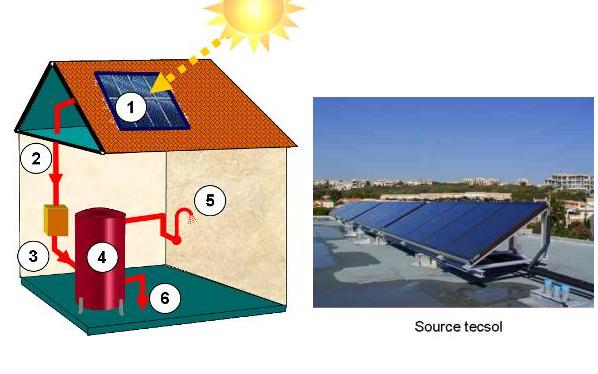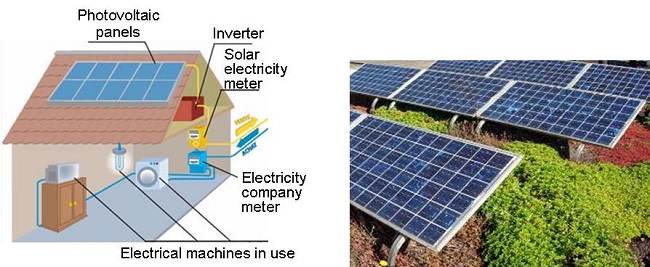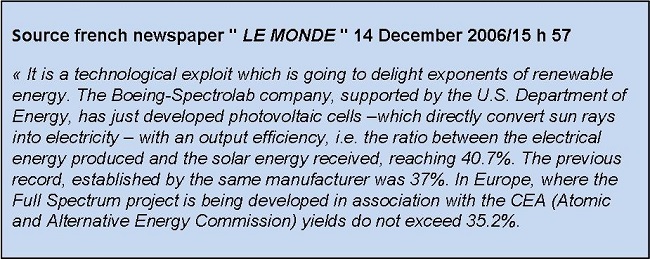We can identify:
- Solar thermal energy

The sun’s rays are converted into heat which can be used for heating domestic water and buildings.
The solar collector panel n°1 transforms the solar energy into thermal
energy.
This energy is transmitted to the heat transfer fluid n°2 and then by means
of the circulation unit n°3 transferred to the storage tank n°4.
This stored energy can be used for domestic hot water (DHW) n°5.
We can also use solar energy for heating swimming pools or for heating the
home n°6.
The systems used for the production of DHW in individual dwellings are called Individual
Solar Water Heating systems (SWH).
The systems used for the production of DHW, home heating (and swimming pool
heating) are called Combined Solar systems.
Current solar thermal technology (heat recovery) enables 80 to 90% of solar
power to be recovered.
We can identify:
- Solar cell
photovoltaic systems
The sun’s rays are converted into electricity.

Current solar cell photovoltaic technology (electricity production) enables
approx. 10 to 20% of solar energy to be converted into electricity.
Question
To extract the heat in summer we could:
- Using the recovery ratios indicated above, give approximate values of the maximum power that can be recovered for 1000 [W] of solar energy received by the solar collector.
1 [m²] of thermal collector panel = 85 % x 1000 = 850 [W] thermal power
1 [m²] of photovoltaic panel = 15 % x 1000 = 150 [W] electrical power
Note : the energy output of photovoltaic cells is relatively low, but there is plenty of hope:

